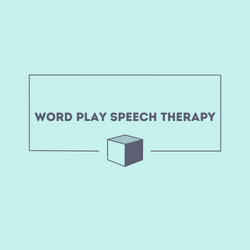Our journey through pediatric hearing loss and finding our voice as a family.
As parents, we all have those moments that divide life into a “before” and an “after.” For our family, that moment came when our middle son: our funny, determined, and big-hearted 9-year-old was diagnosed with moderate hearing loss.
We never saw it coming. He had passed every newborn and school hearing screening. He was bright, curious, and full of personality. But when his teacher raised concerns during a parent-teacher conference, everything changed. What began as a question about spelling tests turned into a journey that opened our eyes to how our child experiences the world and how much he had been missing.
Our Middle Son’s Hearing Loss Journey
We have three boys, each with their own unique personalities. Our middle son, now nine years old, has always been our curious, determined, and sensitive one. A year ago, when he was eight, our world shifted a bit after learning something we never expected, he had moderate hearing loss.
How It Started
During parent-teacher conferences in 2024, his third-grade teacher gently shared a concern. She noticed that his spelling tests didn’t reflect what he truly knew. The mistakes weren’t typical for his age, he wasn’t even spelling words phonetically. That was our first real clue that something deeper might be going on.
We followed up with his ENT, who agreed that, given the teacher’s observations and his below-average grades, it was time for a full audiology exam. We scheduled the test right away.
The Diagnosis
The audiologist was incredible: patient, kind, and clearly experienced with kids. After a round of thorough testing, she confirmed what we weren’t expecting to hear: our son had moderate high-frequency hearing loss in both ears. There was no fluid in his ears, and no easy fix.
We sat there in shock, full of questions.
- Has he always had this hearing loss?
- Could it get worse?
- Is there a cure?
- How did we not know sooner?
Our ENT explained that this type of hearing loss is nerve-based. It wouldn’t have shown up on his newborn hearing screening or the standard school hearing tests.
Processing and Seeking Support
As a mom, I didn’t hesitate. I reached out to friends who work in speech and language and social work, people who’ve supported our family before. (Our oldest has received speech therapy since age two, so we already knew the power of early intervention.)
Those friends wrapped around us with resources, support groups, and so much encouragement. It struck me that hearing loss in children isn’t something many people talk about.
Partnering with the School
Our next step was reaching out to the school. The administrators and staff were wonderful. They quickly began working on accommodations to help him in class, including installing an amplification system and a teacher microphone to make speech clearer for him.
The only thing our son asked?
That no one knows the amp system was for him.
That request broke my heart a little, but it also showed how deeply he just wanted to fit in.
Learning and Growing
As we began to understand more about how his hearing loss affected him, so much started to make sense. His past outbursts, his frustration during conversations, even the way he would withdraw sometimes was all connected back to hearing challenges.
Once he had support in place, we saw real change. He began advocating for himself, letting us know when he couldn’t hear something, or asking us to face him when we spoke. At home, we learned to slow down, make eye contact, and check for understanding.
The Next Step: Hearing Aids
As the school year came to a close, we began the process of getting hearing aids. He was hesitant, terrified actually, that other kids would notice and tease him. My mom heart broke hearing him say that.
We explained that hearing aids are just like glasses—they help you experience the world the way you’re meant to. Still, he didn’t want bright colors or flashy designs. While some clinics offered hundreds of fun options, he wanted his to blend in. Eventually, we found a pediatric hearing center that offered more discreet, adult-style color choices.
When he saw how well they matched his hair and skin, he smiled for the first time in days. We agreed to a 60-day trial period.
It didn’t take 60 days.
It took 48 hours.
Within two days, he was amazed. He couldn’t believe how much he had been missing: small sounds, quiet voices, laughter across the room. He told us, “Mom, I can hear everything now.”
What We’ve Learned
This journey has changed how we see and hear the world as a family. We’ve learned that sometimes, the signs aren’t obvious. We’ve learned the importance of trusting our instincts and listening to the people who care about our kids, like teachers who see them every day.
Most of all, we’ve learned that hearing loss doesn’t define our son, it’s just one part of who he is. He’s still our funny, loving, creative boy. But now, he’s one who hears the birds in the morning, his brothers’ laughter, and the quiet “I love you” whispered from across the room.
If you’re a parent navigating this for the first time, please know you’re not alone. Ask questions. Push for testing. Advocate for your child. There is support, there are answers, and there is so much hope.
Standing with you,
Mindy Earley

